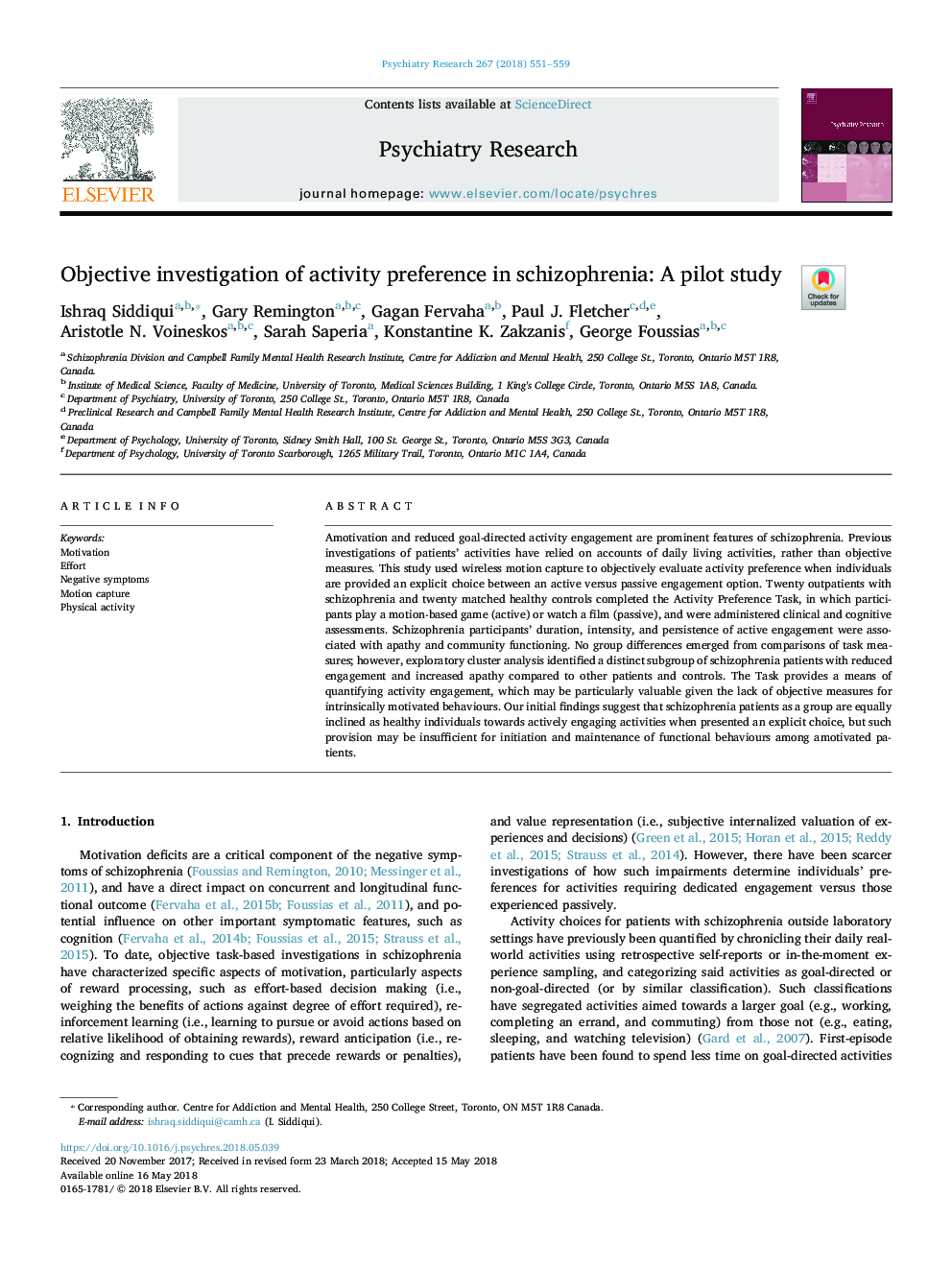| Article ID | Journal | Published Year | Pages | File Type |
|---|---|---|---|---|
| 6811424 | Psychiatry Research | 2018 | 9 Pages |
Abstract
Amotivation and reduced goal-directed activity engagement are prominent features of schizophrenia. Previous investigations of patients' activities have relied on accounts of daily living activities, rather than objective measures. This study used wireless motion capture to objectively evaluate activity preference when individuals are provided an explicit choice between an active versus passive engagement option. Twenty outpatients with schizophrenia and twenty matched healthy controls completed the Activity Preference Task, in which participants play a motion-based game (active) or watch a film (passive), and were administered clinical and cognitive assessments. Schizophrenia participants' duration, intensity, and persistence of active engagement were associated with apathy and community functioning. No group differences emerged from comparisons of task measures; however, exploratory cluster analysis identified a distinct subgroup of schizophrenia patients with reduced engagement and increased apathy compared to other patients and controls. The Task provides a means of quantifying activity engagement, which may be particularly valuable given the lack of objective measures for intrinsically motivated behaviours. Our initial findings suggest that schizophrenia patients as a group are equally inclined as healthy individuals towards actively engaging activities when presented an explicit choice, but such provision may be insufficient for initiation and maintenance of functional behaviours among amotivated patients.
Related Topics
Life Sciences
Neuroscience
Biological Psychiatry
Authors
Ishraq Siddiqui, Gary Remington, Gagan Fervaha, Paul J. Fletcher, Aristotle N. Voineskos, Sarah Saperia, Konstantine K. Zakzanis, George Foussias,
